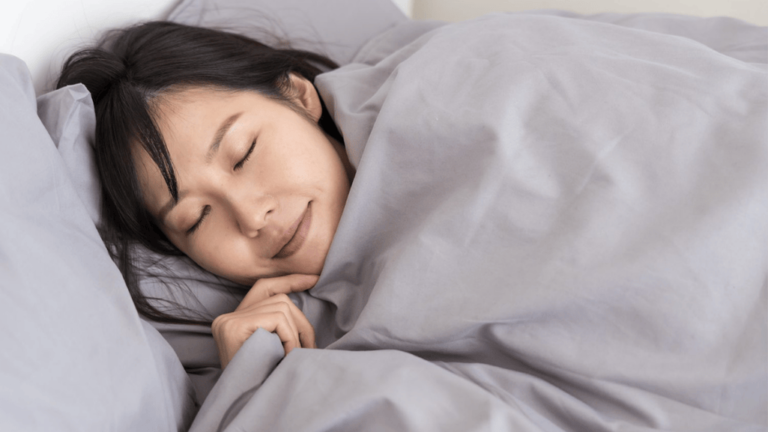In a world where sleep disturbances and insomnia plague many, people are turning to natural remedies like valerian root for relief. This ancient herbal sleep aid has been used for centuries to promote relaxation and improve sleep quality. As a natural alternative to prescription sleep medications, valerian root offers a gentle yet effective solution for those seeking a better night’s rest.
Valerian root, scientifically known as Valeriana officinalis, is a perennial plant native to Europe and Asia. Its roots and rhizomes are dried and used to create various forms of sleep-promoting supplements, including teas, capsules, and tinctures. With its long history of use in traditional medicine, valerian root has gained popularity as a natural sleep aid in modern times.
Research suggests that valerian root may help reduce the time it takes to fall asleep and improve overall sleep quality. Its calming effects are attributed to the presence of compounds like valerenic acid and isovaleric acid, which interact with the brain’s GABA receptors to promote relaxation. By enhancing the activity of these neurotransmitters, valerian root helps to calm the mind and body, making it easier to drift off into a peaceful slumber.
Key Takeaways:
- Valerian root is a popular herbal remedy for insomnia and sleep disturbances.
- It is available in various forms, including teas, capsules, and tinctures.
- Valerian root has been used for centuries in traditional medicine to promote relaxation and improve sleep quality.
- Research suggests that valerian root may reduce the time it takes to fall asleep and enhance overall sleep quality.
- The calming effects of valerian root are attributed to compounds like valerenic acid and isovaleric acid, which interact with the brain’s GABA receptors.
Introduction to Valerian Root
Valerian root, a natural remedy derived from the valerian plant (Valeriana officinalis), has gained popularity as a sleep aid and anxiety relief supplement. This perennial herb, native to Europe and Asia, boasts a long history of medicinal use dating back to ancient Greece and Rome, where it was primarily employed for its sedative and calming effects.
The key to valerian root’s effectiveness lies in its unique composition of chemical compounds, including iridoids, essential oils, lignans, flavonoids, and gamma-aminobutyric acid (GABA). These components work synergistically to promote relaxation and enhance sleep quality by interacting with the brain’s GABA receptors, which play a crucial role in regulating nerve impulses and reducing anxiety.
Valerian root extract, often consumed as a tea or dietary supplement, is renowned for its ability to improve sleep quality and duration without inducing the grogginess commonly associated with conventional sleep aids. Research indicates that consistent use of valerian root can significantly increase the amount of time spent in the deep sleep stage, making it particularly beneficial for older adults who often struggle with sleep disturbances.
“Valerian root has been a trusted natural remedy for centuries, offering a gentle yet effective approach to managing anxiety and promoting restful sleep.”
The versatility of valerian root extends beyond its use as a standalone supplement. Studies have demonstrated positive outcomes in sleep quality and reductions in anxiety and depression when valerian root is combined with other soothing herbs such as chamomile, lemon verbena, and passionflower. This synergistic blend enhances the overall calming effect, providing a comprehensive approach to stress management and sleep support.
| Benefit | Description |
|---|---|
| Improved Sleep Quality | Valerian root helps increase deep sleep time and overall sleep quality. |
| Anxiety Relief | The herb’s interaction with GABA receptors promotes relaxation and reduces anxiety symptoms. |
| Non-Habit Forming | Unlike some prescription sleep aids, valerian root is not known to cause dependency or withdrawal symptoms. |
When incorporating valerian root into your sleep routine, it is recommended to consume the tea or supplement approximately 30 minutes to an hour before bedtime for optimal results. While generally considered safe for regular use, it is always advisable to consult with a healthcare provider before beginning any new supplement regimen, especially if you have pre-existing medical conditions or are taking other medications.
History of Valerian Root as a Sleep Aid
Valerian root, a traditional herb with potent sedative effects, boasts a rich history as a natural remedy for sleep disorders and anxiety. Its use dates back to ancient civilizations, where it was highly valued for its ability to promote tranquility and restful sleep.
Ancient Greek and Roman Usage
The use of valerian root as a medicinal plant can be traced back to ancient Greece and Rome. Hippocrates, the father of modern medicine, described the beneficial uses of valerian root in his writings. In the 16th century, valerian was employed to treat a variety of conditions, including nervousness, trembling, headaches, and heart palpitations.
During World War I, valerian root was even used to treat shellshocked soldiers, showcasing its long-standing reputation as a natural sedative and anxiety reliever.
Traditional Herbal Medicine Applications
In traditional herbal medicine, valerian root has been used to address a wide range of health concerns, such as:
- Insomnia
- Anxiety
- Premenstrual syndrome (PMS)
- Menopause
- Depression
- Headaches
Valerian root has also been noted for its positive effects on various other conditions, including dysmenorrhea, cramps, hypertension, rheumatism, migraine, colic, and even externally for treating eczema, ulcers, and minor injuries.
The historical use of valerian root extends beyond Western civilizations. In the Arabic world around 1000 AD, valerian was documented for its medicinal properties. It was also used in Celtic regions, with plants like Valeriana saliunca All. being harvested for their roots in areas such as the Alps and Central Apennines.
Valerian root has been traded in dried form, often resembling a spike composed of fibrous roots. Its intense fragrance led to its use as incense in religious ceremonies in India. The plant’s resemblance to Spikenard, an aromatic herb native to the Himalayas, resulted in historical confusion and overlap in nomenclature and usage in ancient texts.
As you embark on your journey to improved sleep quality, take inspiration from the time-honored wisdom of our ancestors who recognized the remarkable properties of valerian root. Embrace the power of this traditional herb and discover the transformative impact it can have on your sleep and overall well-being.
How Valerian Root Works in the Body
Valerian root is a natural sleep aid that has been used for centuries to promote relaxation and improve sleep quality. The unique combination of compounds found in valerian root work together to create a calming effect on the body and mind, helping you drift off into a peaceful slumber.
Active Compounds in Valerian Root
The key to valerian root’s sleep-promoting properties lies in its active compounds. These include:
- Valerenic acid
- Isovaleric acid
- Valepotriates
- Lignans
- Flavonoids
- Gamma-aminobutyric acid (GABA)
Among these, valerenic acid is considered the most potent and well-studied compound, contributing significantly to valerian root’s sedative effects.
Effects on GABA Receptors and Serotonin
Valerian root’s active compounds, particularly valerenic acid, interact with GABA receptors in the brain. GABA is a neurotransmitter that plays a crucial role in regulating anxiety, stress, and sleep. By enhancing GABA signaling, valerian root promotes a sense of calm and relaxation, making it easier to fall asleep.
Furthermore, valerian root may also influence serotonin receptors. Serotonin is another neurotransmitter involved in mood regulation and sleep-wake cycles. By modulating serotonin receptors, valerian root can help improve sleep quality and duration.
“Valerian root’s ability to interact with both GABA and serotonin receptors makes it a powerful natural sleep aid, offering a holistic approach to better rest.”
Impact on Brain Activity and Brain Waves
Studies have shown that valerian root can have a profound impact on brain activity and brain waves. It has been found to reduce brain activity in the motor cortex in response to stimulation, suggesting a calming effect on the central nervous system.
Moreover, valerian root has been observed to alter the synchronization of brain waves in different regions of the brain, particularly in response to stress and anxiety. This harmonizing effect on brain waves may contribute to its ability to promote deep, restorative sleep.
| Brain Wave Type | Frequency Range | Valerian Root’s Effect |
|---|---|---|
| Alpha Waves | 8-13 Hz | Promotes relaxation and reduces anxiety |
| Theta Waves | 4-8 Hz | Enhances deep sleep and emotional processing |
| Delta Waves | 0.5-4 Hz | Supports deep, restorative sleep and physical healing |
By influencing these brain wave patterns, valerian root creates an internal environment conducive to restful sleep, allowing you to wake up feeling refreshed and rejuvenated.
Benefits of Valerian Root for Sleep
Valerian root, a natural herbal remedy, has garnered attention for its potential to enhance sleep quality and promote better rest. With its long history of use dating back to ancient times, valerian root has shown promise in improving various aspects of sleep, making it an appealing option for those seeking a natural approach to better slumber.
Improved Sleep Quality and Duration
One of the primary benefits of valerian root lies in its ability to enhance overall sleep quality. Studies have demonstrated that regular use of valerian root supplements can lead to more restful and rejuvenating sleep. Participants in these studies reported waking up feeling more refreshed and energized, with a notable improvement in their sleep quality compared to those taking a placebo.
Moreover, valerian root has been shown to extend the duration of sleep, allowing individuals to enjoy longer periods of uninterrupted rest. This is particularly beneficial for those who struggle with frequent nighttime awakenings or difficulty staying asleep throughout the night.
Reduced Time to Fall Asleep
In addition to improving sleep quality, valerian root has been found to reduce sleep latency, which refers to the time it takes to transition from wakefulness to sleep. Many people grapple with the frustration of lying in bed, unable to drift off, leading to increased stress and anxiety. Valerian root’s sedative properties can help alleviate this issue by promoting a state of relaxation and calmness, making it easier to fall asleep more quickly.
A meta-analysis of six trials revealed that valerian root significantly reduced sleep latency compared to a placebo, highlighting its potential as a natural sleep aid.
Increased Deep Sleep Stage
The deep sleep stage, also known as slow-wave sleep, is crucial for physical restoration, hormone regulation, and memory consolidation. Valerian root has been shown to increase the amount of time spent in this restorative stage of sleep. By promoting deeper, more restful sleep, valerian root can contribute to improved overall health and well-being.
| Benefit | Description |
|---|---|
| Improved Sleep Quality | Valerian root enhances the overall quality of sleep, leading to more restful and rejuvenating slumber. |
| Reduced Sleep Latency | Valerian root helps individuals fall asleep more quickly by promoting relaxation and calmness. |
| Increased Deep Sleep | Valerian root increases the amount of time spent in the deep sleep stage, crucial for physical restoration and memory consolidation. |
While the benefits of valerian root for sleep are promising, it is important to note that individual results may vary. Some studies have found inconsistent or statistically insignificant effects, suggesting that regular use may be necessary to experience the full benefits. As with any herbal supplement, it is advisable to consult with a healthcare professional before incorporating valerian root into your sleep routine.
Valerian Root vs. Other Natural Sleep Aids
When it comes to natural sleep aids, valerian root stands out as a promising melatonin alternative. While melatonin supplements have gained popularity, a 2014 review of studies found that valerian root can effectively improve sleep quality and reduce the time it takes to fall asleep. This makes valerian root a compelling choice for those seeking a natural way to enhance their sleep without relying on melatonin.
However, it’s essential to note that the American Academy of Sleep Medicine advises against using natural sleep aids, including valerian root and melatonin, for treating chronic insomnia due to limited evidence supporting their long-term effectiveness and safety. While valerian root shows promise as a melatonin alternative, more research is needed to fully understand its potential benefits and drawbacks.
When comparing valerian root to other natural sleep aids, it’s crucial to consider factors such as dosage, potential side effects, and interactions with medications. For instance, melatonin supplements typically range from 1–5 mg for insomnia and 5 mg for jet lag, while valerian root doses may vary from 300–600 mg. A study from 2003 concluded that valerian root can help ease mild insomnia with minimal side effects, particularly when used over an extended period.
Other natural sleep aids like magnesium, lavender, and passionflower have also shown potential in improving sleep quality. Magnesium supplementation can reduce the time it takes to fall asleep, while lavender aromatherapy may benefit individuals with or without insomnia. Passionflower extract has been associated with improvements in total sleep time and sleep efficiency. However, more research is needed to fully evaluate the effectiveness and safety of these natural alternatives compared to valerian root.
In a 2006 review of studies, valerian root was found to improve sleep quality without negative effects for most people, making it a promising melatonin alternative for those seeking natural sleep support.
When choosing a natural sleep aid, it’s essential to consider your individual needs and preferences. Consulting with a healthcare professional can help you determine whether valerian root or another melatonin alternative is right for you. They can also guide you on appropriate dosages and potential interactions with any medications you may be taking.
Ultimately, while valerian root shows promise as a natural sleep aid and melatonin alternative, it’s crucial to approach its use with caution and under the guidance of a qualified healthcare provider. By making informed decisions and prioritizing your overall health and well-being, you can harness the power of valerian root and other natural solutions to achieve the restful, rejuvenating sleep you deserve. Don’t forget to check out GERD pillows for additional support in promoting better sleep and managing acid reflux symptoms.
Potential Side Effects and Precautions
While valerian root is generally considered safe and well-tolerated, it is essential to be aware of potential side effects and precautions before incorporating this natural sleep aid into your routine. By understanding the common mild side effects, interactions with medications, and precautions for specific populations, you can make an informed decision about whether valerian root is right for you.
Common Mild Side Effects
Although valerian root is known for its gentle nature, some individuals may experience mild side effects. These can include headache, dizziness, stomach upset, heart disturbances, and dry mouth. Approximately 16% of people using valerian root as a sleep aid have reported vivid dreams, while 18% experienced an increase in diarrhea compared to 8% in the placebo group. It is important to note that these side effects are generally uncommon and subside quickly.
Interactions with Medications
Valerian root may interact with certain medications, making it crucial to consult with a healthcare provider before combining this herb with other substances. Caution should be exercised when consuming valerian root alongside alcohol, antidepressants, sedatives, narcotics, and other medications that cause drowsiness. These interactions may change how the medications work or increase the risk of serious side effects. Valerian root has been found to interact with at least 65 different drugs, with moderate interactions reported for at least 52 drugs.
Precautions for Specific Populations
Certain populations should exercise caution or avoid valerian root altogether due to limited safety information. Pregnant and breastfeeding women are advised to steer clear of valerian root, as there is insufficient data regarding its safety during these sensitive periods. Similarly, young children under the age of 3 should not be given valerian root. Individuals with diabetes, alcohol dependence, or liver disease should be mindful of the potential presence of sugar and/or alcohol in liquid forms of valerian root.
| Population | Precaution |
|---|---|
| Pregnant women | Avoid use due to limited safety information |
| Breastfeeding women | Consult a doctor before use |
| Children under 3 years old | Avoid use due to limited safety information |
| Individuals with diabetes, alcohol dependence, or liver disease | Be cautious of sugar and/or alcohol content in liquid forms |
It is worth noting that while valerian root is possibly safe for short-term use in most adults, it should not be taken for longer than 28 days without consulting a healthcare professional. Long-term use of valerian may lead to dependence and withdrawal symptoms.
Always prioritize your health and well-being by staying informed about the potential side effects and precautions associated with any natural sleep aid, including valerian root.
Dosage and Administration of Valerian Root
When considering valerian root dosage for better sleep, it’s essential to understand that there is no official recommended amount. However, most research studies investigating valerian root’s impact on sleep have utilized doses ranging from 300 to 600 milligrams, taken once daily on a consistent basis. For individuals new to using valerian root, starting with a lower dose and gradually increasing it over time as needed is often the best approach.
One study found that a valerian root dosage of 300 to 600 mg, taken 30 minutes to two hours before bedtime, was effective in improving sleep quality. Another research showed that for anxiety relief, a dosage of 120 to 200 mg, three times per day, with the final dose before bedtime, was beneficial. It’s crucial to note that individual responses to valerian root may vary, and consulting a healthcare professional before starting any supplement regimen is always recommended.
“Insomnia affects around one-third of all adults at least once during their lives, and valerian root has been studied as a potential natural remedy for this common sleep disorder.”
For those who prefer a more traditional approach, valerian root can also be consumed as a tea. To prepare valerian root tea, follow these steps:
- Soak 2 to 3 grams of dried herbal valerian root in 1 cup of hot water.
- Allow the mixture to steep for 10 to 15 minutes.
- Strain the tea and consume it 30 minutes to an hour before bedtime.
Valerian root is available in various forms, including capsules, tablets, and tea, which can be purchased online or at drugstores. When selecting a valerian root supplement, look for products that have been standardized to contain a specific amount of valerenic acid, one of the key active compounds in valerian root. Additionally, choosing supplements from reputable brands that undergo third-party testing can help ensure quality and safety. For those seeking a natural way to improve sleep quality, a leg elevated pillow can be used in conjunction with valerian root for enhanced relaxation and comfort.
| Valerian Root Form | Recommended Dosage | Administration |
|---|---|---|
| Capsules/Tablets | 300-600 mg | Once daily, 30 minutes to 2 hours before bedtime |
| Tea | 2-3 grams dried root per cup | Steep for 10-15 minutes, consume 30 minutes to 1 hour before bedtime |
| Tincture | 1-2 ml | Up to 3 times per day, with the last dose before bedtime |
While valerian root is generally considered safe, it’s essential to be aware of potential side effects and precautions. Some individuals may experience mild side effects such as headache, dizziness, stomach upset, or restlessness. Pregnant or nursing women and children under three years of age should avoid using valerian root. Additionally, valerian root can interact with certain medications, particularly sedatives, and should not be combined with alcohol or other sleep aids without consulting a healthcare professional.
Choosing a Quality Valerian Root Supplement
When seeking a natural sleep aid, it’s crucial to select a high-quality valerian root supplement to ensure safety and effectiveness. With the vast array of options available, navigating the supplement market can be challenging. However, by focusing on a few key factors, you can make an informed decision and choose a valerian root supplement that meets your needs.
It’s important to note that in the United States, the Food and Drug Administration (FDA) does not regulate supplements as stringently as prescription drugs. This means that some supplement products may not contain the ingredients or amounts stated on the label. To mitigate this concern, look for valerian root supplements that have undergone third-party testing by independent laboratories. These tests can verify that the product contains the claimed ingredients and is free from contaminants, providing an extra layer of assurance.
Standardized Extracts
When shopping for a valerian root supplement, opt for products that contain standardized extracts. Standardization ensures that each dose of the supplement contains a consistent amount of the active compounds, such as valerenic acids. This consistency is crucial for achieving the desired effects and minimizing the risk of adverse reactions.
Third-Party Testing
As mentioned earlier, third-party testing is a valuable tool for ensuring the quality and purity of valerian root supplements. Organizations like ConsumerLab.com conduct independent evaluations of supplements, assessing their ingredient content, potency, and purity. In a recent review, ConsumerLab.com selected eight valerian products for testing, with two additional products passing their voluntary Quality Certification Program.
The results of these tests can be eye-opening. Out of the evaluated valerian supplements, three did not contain the expected minimum amounts of valerenic acids, while six provided less than 2 mg of valerenic acids per dose. By referencing third-party test results, you can make a more informed decision when selecting a valerian root supplement.
Reputable Brands
Another factor to consider when choosing a valerian root supplement is the reputation of the brand. Look for companies with a history of producing high-quality, pure, and effective supplements. These brands often prioritize transparency, providing detailed information about their sourcing, manufacturing processes, and quality control measures.
In their recent review, ConsumerLab.com identified two valerian products as their top picks based on quality, purity, dose, and value. By selecting supplements from reputable brands that have been recognized for their excellence, you can feel more confident in your choice.
Remember, while valerian root supplements are generally considered safe, it’s always best to consult with a healthcare professional before starting any new supplement regimen. They can help you determine the appropriate dosage and ensure that the supplement won’t interact with any existing medications or health conditions.
By prioritizing standardized extracts, third-party testing, and reputable brands, you can navigate the world of valerian root supplements with greater ease and confidence. Taking the time to select a quality product can make all the difference in your journey towards better sleep and overall well-being.
Incorporating Valerian Root into a Sleep Routine
Embarking on a journey to better sleep can be transformative, and incorporating valerian root into your nightly routine may be the key to unlocking more restful slumber. To maximize the potential benefits of this natural sleep aid, it’s essential to approach its use with mindfulness and intention.
Timing of Supplementation
The timing of your valerian root supplementation can significantly impact its effectiveness in promoting better sleep. Experts recommend taking valerian root about an hour before your desired bedtime. This allows the body sufficient time to absorb the active compounds and initiate the relaxation response.
Consider creating a soothing pre-sleep ritual that includes taking your valerian root supplement. Whether in the form of capsules, tablets, liquid extracts, or a calming cup of tea, make this step a cherished part of your sleep routine. The act of consciously preparing for rest can signal to your mind and body that it’s time to wind down and embrace tranquility.
Complementary Sleep Hygiene Practices
While valerian root can be a valuable tool in your sleep toolkit, it’s most effective when combined with good sleep hygiene practices. These habits lay the foundation for a restful night and amplify the benefits of natural sleep aids like valerian root.
- Maintain a consistent sleep schedule: Aim to go to bed and wake up at the same time each day, even on weekends. This helps regulate your body’s internal clock and promotes more restful sleep.
- Create a relaxing bedtime routine: Develop a series of calming activities to help you unwind before bed. This might include gentle stretching, reading a book, journaling, or practicing relaxation techniques like deep breathing or meditation.
- Optimize your sleep environment: Ensure your bedroom is cool, dark, and quiet. Invest in a comfortable mattress, pillows, and bedding that support your body and promote relaxation.
- Limit screen time before bed: The blue light emitted by electronic devices can interfere with your body’s natural sleep-wake cycle. Aim to disconnect from screens at least an hour before bedtime to allow your mind to settle into a peaceful state.
“Sleep is the golden chain that ties health and our bodies together.” – Thomas Dekker
By embracing these complementary sleep hygiene practices and incorporating valerian root into your nightly routine, you’re taking a proactive step towards better sleep and enhanced well-being. Remember, consistency is key. Give yourself time to adapt to these new habits and allow the gentle power of valerian root to work its magic.
As with any new supplement, it’s always wise to consult with a healthcare professional before starting, especially if you have any underlying medical conditions or are taking other medications. With patience, dedication, and the support of natural aids like valerian root, you’ll be well on your way to discovering the restorative bliss of a truly restful night’s sleep.
Valerian Root for Sleep: What the Research Says
The effectiveness of valerian root as a natural sleep aid has been the subject of numerous clinical trials and research studies. These investigations aim to provide scientific evidence supporting the use of valerian root for improving sleep quality and alleviating symptoms of insomnia. By examining the findings of these studies, individuals can make informed decisions about incorporating valerian root into their sleep-related healthcare routines.
Clinical Trials on Valerian Root and Insomnia
Several clinical trials have explored the impact of valerian root on insomnia. A meta-analysis conducted by Fernández-San-Martín et al. in 2010 analyzed randomized placebo-controlled trials to assess the effectiveness of valerian on insomnia. Additionally, a systematic review by Stevinson and Ernst in 2000 covered valerian for insomnia, including data from randomized clinical trials. These studies provide valuable insights into the potential benefits of valerian root for individuals struggling with sleep disorders.
Limitations and Future Research Directions
While the existing research on valerian root and sleep is promising, there are limitations to consider. The quality of evidence in some studies has been rated as low to moderate due to variations in study design and inconsistencies in results across trials. To establish more definitive conclusions, future research should focus on conducting well-designed, large-scale clinical trials with standardized protocols. Researchers should also investigate the optimal dosage and long-term safety of valerian root for sleep, as well as explore its potential mechanisms of action and compare its effectiveness to other natural and pharmaceutical sleep aids.












